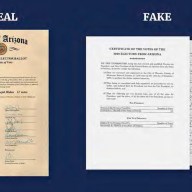In the first chapter of The No Asshole Rule, author Robert Sutton says that constructive conflict can help a company thrive. But how do you achieve that?
Last week, Anna Maravelas, author and corporate peacemaker, shared her insights about the four different ways we respond to others when their behaviour disappoints or offends. Last week we discussed the first two: Hot contempt (hostile attitude and high assertiveness) which results in direct attacks; and cold contempt (hostile attitude and being passive) which comes across through avoidance and backstabbing.
This week Maravelas addresses the last two approaches; the doormat approach and warm integrity. The doormat approach is exactly what it sounds. People see you as a pushover – it combines warmth and passivity.
“In this response we’re warm but we lack the courage to be direct and specific about our desires and needs,” she says. “We abdicate our leadership responsibility at home and work, and/or we sacrifice our needs in order to appease the other party.”
The final approach, and one that is rarely used is a combination of warmth and assertiveness called warm integrity. According to Maravelas this reaction addresses the offending behaviour directly but the emotional tone is one of warmth.
“In this way we strengthen the relationship, we help the other person save face, create positive reciprocity and optimize the possibility that the other person will learn from their error.”
It’s assumed the other person might have a reason for their behaviour. Also we examine our behaviour. Did I lack skill, insight or confidence in handling this situation?
“From laboratory studies on conflict discussion we know the first three minutes determine the outcome of the discussion with 96 per cent reliability,” says Maravelas. “Given this I recommend first you affirm your desire to preserve or strength the relationship. If the other party isn’t clear that your intention is not to harm them they will be defensive. Affirm your desire to strengthen the relationship by resolving the source of tension.”
Sutton adds a series of studies show that when teams engage in conflict with mutual respect, they perform better. “(However) when they fight out of spite and anger — their creativity, performance, and job satisfaction plummets. In other words, when people act like a bunch of assholes, the whole group suffers,” he says.
















